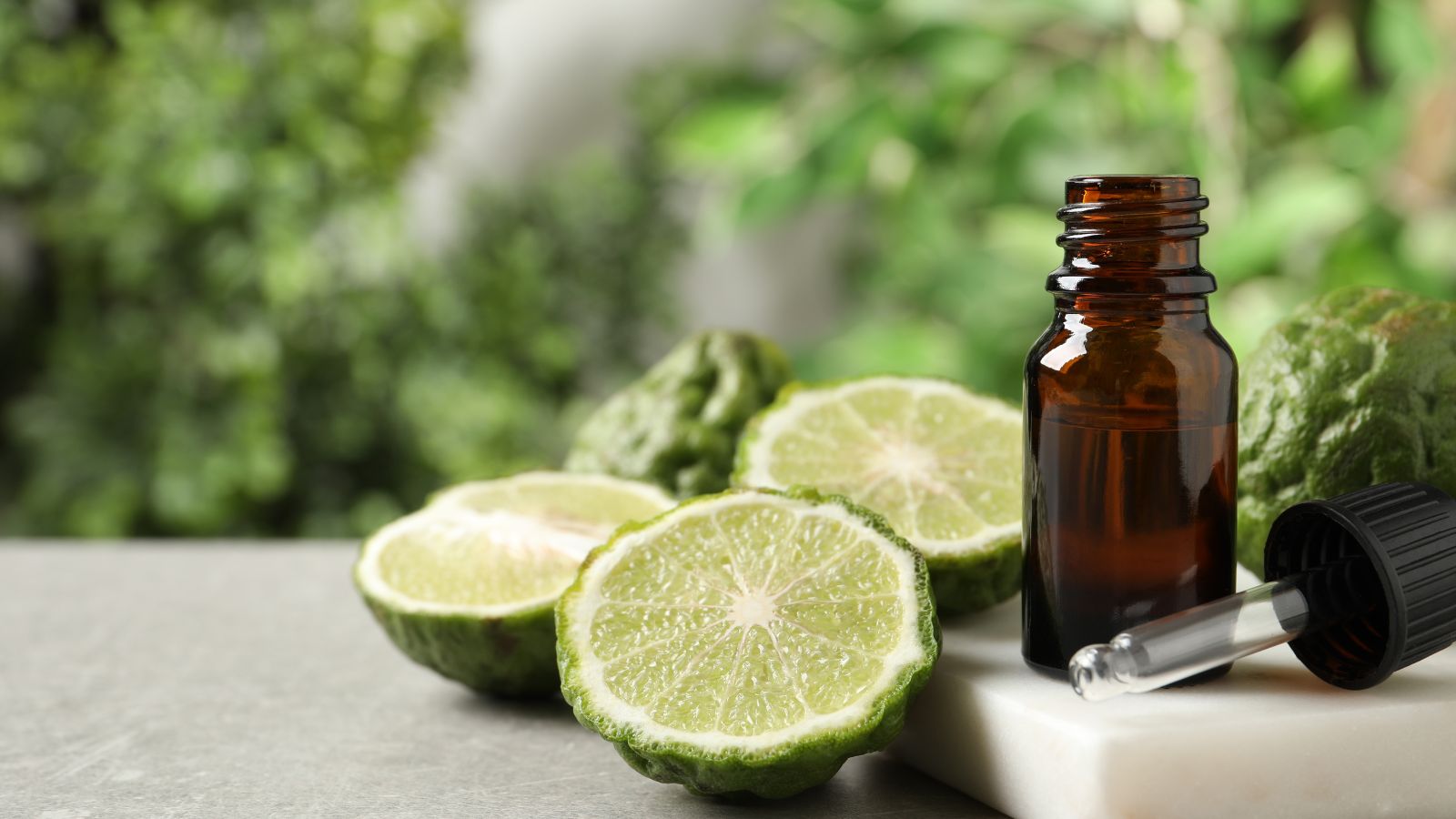Bergamot essential oil is celebrated for its unique aroma, a complex symphony of scents that can brighten your mood and your space.
Extracted from the rind of the Citrus bergamia fruit, it is a top note in perfumery that imparts a fresh, citrusy fragrance with a subtle spicy and floral nuance.
When you inhale the scent of bergamot oil, you might be reminded of the refreshing and sweet high notes of a ripe orange or lemon, paired with a distinctive floral depth that sets it apart from other citrus oils.
Weaving an intricate olfactory tapestry, bergamot’s aroma can be characterized as bright and uplifting.
Its versatility is evident not only in its standalone charm but also in how it blends harmoniously with a variety of other scents to create signature perfumes.
Beyond its delightful fragrance, bergamot oil is often used in aromatherapy for its potential therapeutic properties, which may include mood enhancement and stress relief.
When you use bergamot essential oil, it promises to be more than just a pleasant scent; it can become a part of your wellness routine, contributing to an atmosphere of relaxation and positivity.
Key Takeaways
- Bergamot essential oil has a unique and complex citrus aroma with spicy and floral hints.
- Its fragrance is commonly used for mood enhancement and stress relief.
- Bergamot oil is a versatile component in perfumery, complementing a variety of scents.
1. Bergamot Essential Oil Profile
When you explore bergamot essential oil, you’re delving into a world of vibrant citrus aroma with historical roots and distinct characteristics.
Botanical Background
The bergamot orange (Citrus bergamia) is unique amongst citrus plants. It hails from subtropical climates and is primarily cultivated in the southern part of Italy.
The oil itself is extracted from the peel of the fruit, which has a distinctive bumpy exterior, and is a highly prized commodity in both the perfume industry and traditional medicine.
Its lineage within the Rutaceae family establishes it as a cousin to other familiar citrus fruits yet with its own particular qualities.
Characteristic Scent
Your first encounter with the scent of bergamot essential oil is likely to be refreshing and uplifting.
Its complex aroma is a blend of sweet, citrusy tones accompanied by subtle floral notes and a hint of spiciness.
The presence of compounds such as linalool imparts a floral freshness often compared to lavender, while linalyl acetate contributes a fruity quality that rounds out the scent profile, adding a pleasing robustness with a mere suggestion of mint.
Bergamot’s signature fragrance is at once familiar and exotic, making it a beloved ingredient in fragrances like the classic Earl Grey tea and a variety of perfumes.
It’s this distinct combination of fruity and floral that gives bergamot essential oil its refreshing and invigorating quality, beloved for its ability to both soothe and stimulate the senses.
2. Therapeutic Properties
Bergamot essential oil is prized for more than its inviting scent; it offers several therapeutic benefits that can enhance your well-being.
From improving your mood to caring for your skin and bolstering your physical health, let’s explore how this fragrant oil supports your health journey.
Mood Enhancement
- Aromatherapy: When used in aromatherapy, bergamot essential oil can help alleviate symptoms of anxiety and stress. It’s known for its ability to help lift your spirits and boost your confidence.
- Depression: The fresh, citrus scent may also contribute to reducing feelings of sadness, creating an uplifting atmosphere.
Skin Benefits
- Anti-inflammatory: Bergamot oil contains compounds that have anti-inflammatory benefits, making it a potential ally for soothing irritated skin.
- Antibacterial: Its antibacterial properties mean it can help keep skin clean, which is particularly beneficial for treating conditions like acne.
Supporting Physical Health
- Bergapten: Although bergamot oil contains bergapten, which is associated with photosensitivity, its potential health benefits include promoting healthy skin.
- Cholesterol: There are indications that bergamot oil might support cardiovascular health by positively influencing your cholesterol levels.
3. Using Bergamot Essential Oil
Bergamot essential oil, known for its uplifting citrus scent, is versatile and can be used in various ways.
Whether you’re looking to enhance your mood or care for your skin, understanding the proper uses and safety measures is crucial.
In Aromatherapy
To harness the mood-boosting effects of bergamot oil in aromatherapy, you can add a few drops to a diffuser or inhale it directly.
Limonene and linalool, key compounds in bergamot oil, contribute to its citrusy fragrance and are recognized for their stress-relieving properties.
Remember, it blends well with other essential oils such as lavender and ylang-ylang for a customized scent.
For Skin Care
Bergamot oil can be incorporated into your skin care routine due to its purifying properties. However, it should always be diluted with a carrier oil, such as jojoba or coconut oil, before application.
Conduct a patch test to ensure you don’t have allergies. A typical dilution ratio is one drop of bergamot oil to five drops of carrier oil.
Apply the mixture to small areas of your skin to add a feeling of freshness.
Note: Bergamot oil can cause photosensitivity, making your skin more sensitive to sunlight. Hence, it’s advisable to use sun protection or avoid direct sun exposure after applying it to your skin.
Safety and Precautions
When using bergamot essential oil, always prioritize safety:
- Dilute with a carrier oil to minimize skin irritation.
- Avoid applying near your eyes, ears, or broken skin.
- Perform a patch test before widespread use.
- Be aware of bergamot oil’s photosensitizing effects; avoid sun exposure or apply sunscreen.
By following these guidelines, you can enjoy the benefits of bergamot essential oil safely and effectively.
4. Bergamot in Perfumery and Blends
Bergamot essential oil is a celebrated top note in perfumery, cherished for its bright, citrusy scent that complements an array of fragrances.
Role in Fragrances
Bergamot is a top note in many perfumes, meaning it’s one of the first scents you experience when you smell a fragrance.
Its citrusy qualities offer a refreshing start that can energize and uplift. Since top notes are the most volatile, they evaporate quickly, but they’re also essential in making that all-important first impression.
Complementary Scents
Your love for bergamot’s scent might make you curious about what it pairs well with. Here’s a guide:
- Citrusy: Bergamot itself is citrusy, so it naturally complements other citrus scents, forming a vibrant, zesty blend.
- Spicy: The spicy undertones in bergamot can be enhanced when blended with spices like ginger or cardamom.
- Floral: For a softer profile, it pairs well with floral notes, creating a balanced bouquet.
- Earl Grey Tea: The distinctive flavor of Earl Grey tea comes from bergamot oil, making it a familiar scent for many.



